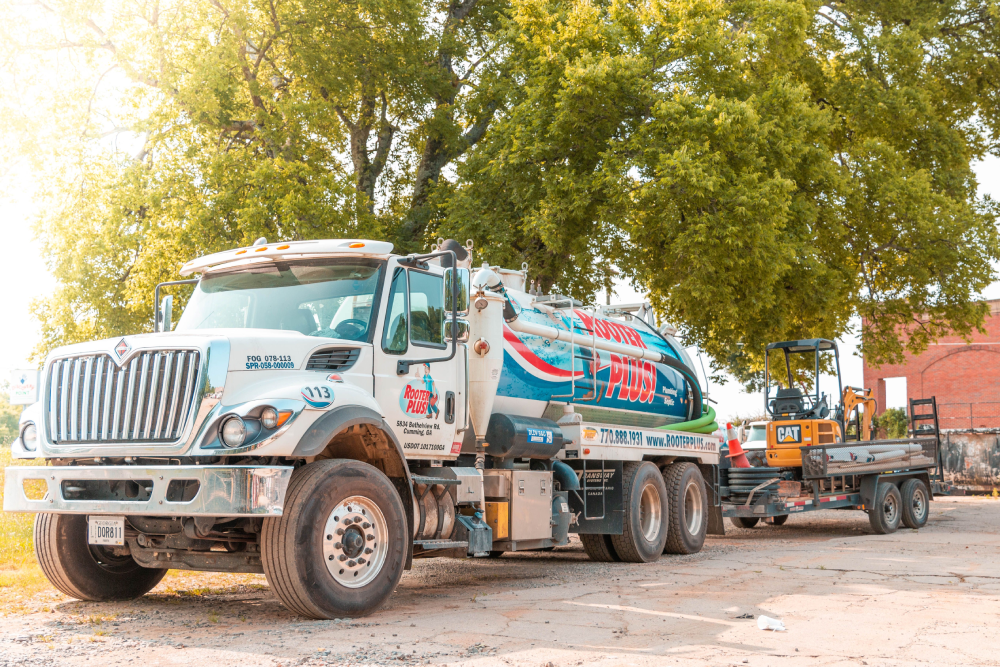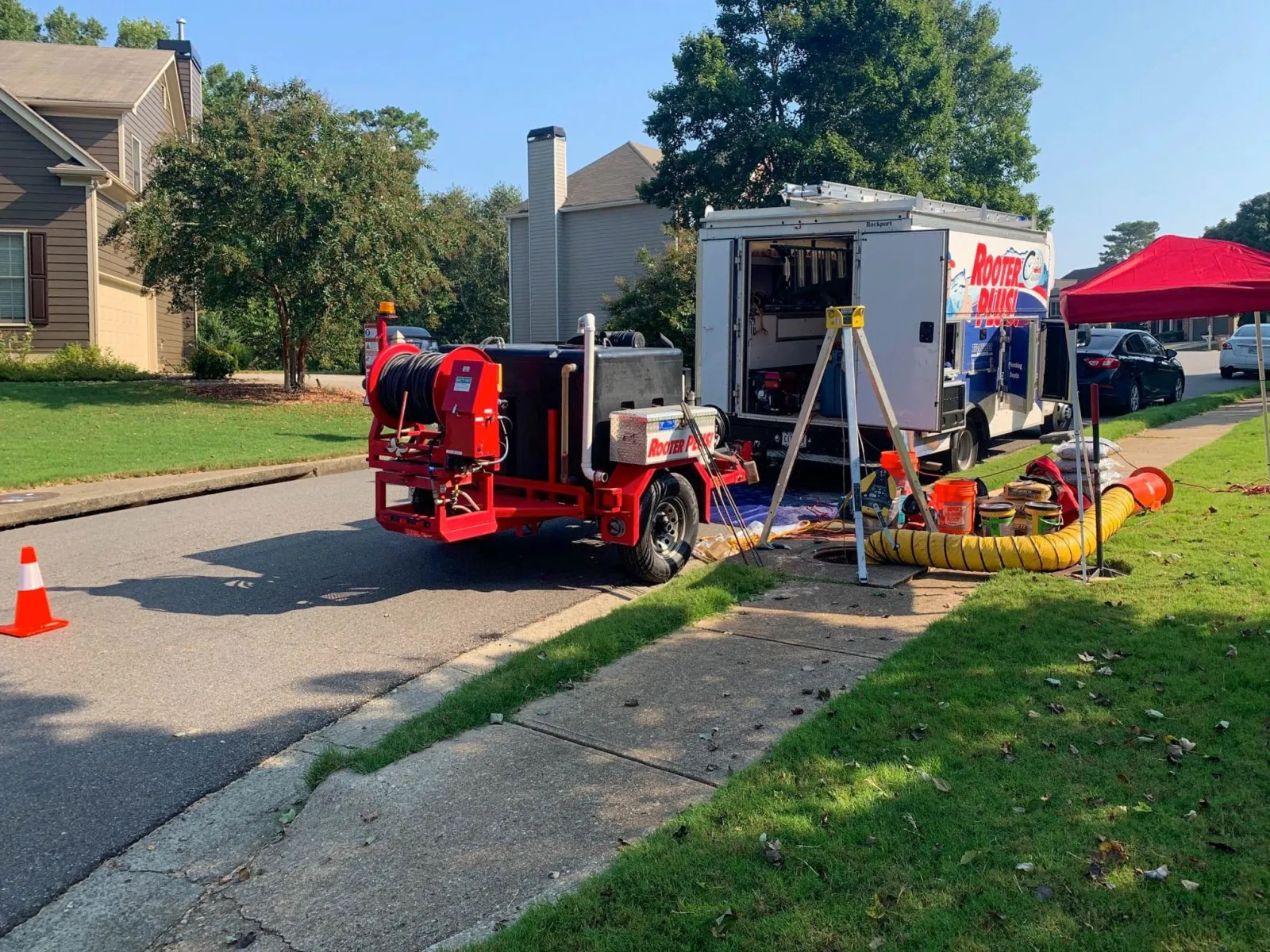
Maintaining Your Septic System: The Key to Avoiding Plumbing Nightmares
Serving The Atlanta Area For Nearly 30 Years
Atlanta's Septic Tank Experts
Are you tired of dealing with plumbing nightmares? Constant clogs, foul odors, and costly repairs can all be avoided by giving proper attention to your septic system.
Maintaining your septic system is crucial not only for the health and longevity of your plumbing, but also for the overall well-being of your home. In this fast-paced world, it's easy to overlook the importance of regular septic system maintenance.
However, neglecting this vital aspect of homeownership can lead to disastrous consequences. Fortunately, with a few simple steps, you can ensure that your septic system remains in optimal condition, saving you time, money, and headaches in the long run.
In this article, we will explore the key tips and strategies for maintaining your septic system, so you can enjoy a worry-free and smoothly-running plumbing system. Don't wait for a plumbing nightmare to strike - take control of your septic system today!
Understanding Your Septic System
To effectively maintain your septic system, it's essential first to understand how it works. A septic system is an on-site wastewater treatment system commonly used in rural areas where a centralized sewer system is unavailable. It consists of a septic tank, drainfield, and soil absorption system.
When wastewater from your home enters the septic tank, solids settle to the bottom, while oil, grease, and lighter solids float to the top. Bacteria in the tank break down the solids, converting them into liquid. The liquid effluent then flows out of the tank and into the drainfield, where the soil further treats it.
Proper understanding of your septic system is essential for effective maintenance. Regular inspection of your septic tank, drainfield, and soil absorption system will help you identify any potential issues before they become major problems. Additionally, knowing the location of your septic system components will enable you to take necessary precautions when landscaping or performing any construction activities around your property.

Maintaining your septic system starts with understanding its basic functioning and components. In the following sections, we will explore the importance of regular maintenance, signs of a failing septic system, and various DIY and professional maintenance strategies to keep your septic system running smoothly.
Importance of Regular Maintenance
Regular maintenance is the key to avoiding septic system failures and costly repairs. Just like any other system in your home, your septic system requires routine care and attention to ensure its proper functioning.
Neglecting maintenance can lead to a buildup of solids in the tank, clogs in the drainfield, and damage to the soil absorption system. This can result in sewage backups, foul odors, and even contamination of your groundwater.
One of the most important aspects of regular maintenance is having your septic tank pumped and cleaned regularly. The pumping frequency depends on the size of your tank and the number of occupants in your home.
As a general rule of thumb, having your septic tank pumped every 3-5 years is recommended. This will prevent solids from accumulating in the tank and overflowing into the drainfield, which can cause significant damage to your system.
In addition to septic tank pumping, regular septic system inspection is crucial. A professional septic system inspector can assess the condition of your tank, drainfield, and soil absorption system, and identify any potential issues.
Early detection of problems can save you from costly repairs and ensure the longevity of your septic system. It's also important to keep a record of all maintenance activities and inspections, as this will help you track the history of your septic system and plan for future maintenance.
Regular maintenance is crucial for the health and functionality of your septic system and the environment. A well-maintained septic system helps protect groundwater and surface water from contamination. By properly maintaining your septic system, you are doing your part to preserve the environment and ensure the well-being of future generations.

Signs of a Failing Septic System
Knowing the signs of a failing septic system is crucial for early detection and timely action. Ignoring these warning signs can lead to catastrophic septic system failures and expensive repairs. Here are some common signs that indicate your septic system may be failing:
- Slow-draining sinks, toilets, or showers: If you notice that water is taking longer to drain than usual, it could be a sign of a clogged drainfield or septic tank. This can be caused by a buildup of solids in the tank or a malfunctioning drainfield.
- Foul odors: Unpleasant odors from your drains, toilets, or yard can indicate a problem with your septic system. These odors are caused by releasing gases produced during the breakdown of organic matter in the septic tank. If you notice persistent foul odors, it's important to have your septic system inspected.
- Sewage backups: If sewage starts backing up into your sinks, toilets, or showers, it's a clear sign of a septic system failure. This can be caused by a full or clogged septic tank, a damaged drainfield, or a blockage in the plumbing system. Immediate action is required to prevent further damage and contamination.
- Lush or soggy areas in your yard: If you notice areas in your yard that are unusually green or soggy, it could be a sign of a leaking septic system. Leaking sewage can fertilize the surrounding soil, leading to lush vegetation. It's important to address this issue promptly to prevent groundwater contamination.
- High levels of nitrates in well water: Elevated levels of nitrates in your well water can indicate septic system failure. Nitrates are a byproduct of the breakdown of organic matter in the septic tank and can contaminate groundwater. Regular testing of your well water is essential to ensure its safety.
If you notice any of these signs, it's essential to take immediate action. Contact a professional septic system inspector to assess the condition of your system and recommend the necessary repairs or maintenance.
Early detection and intervention can save you from costly repairs and potential health hazards.
Frequently Asked Questions
Q What is a septic system?
A septic system is an on-site wastewater treatment system used in areas without access to a centralized sewer system. It consists of a septic tank, drainfield, and soil absorption system.
Q How does a septic system work?
Wastewater from your home flows into the septic tank, where solids settle to the bottom and are broken down by bacteria. The liquid effluent then flows into the drainfield, where it is further treated by the soil.
Q How often should I pump my septic tank?
The pumping frequency depends on the size of your tank and the number of occupants in your home. Generally, septic tanks should be pumped every 3-5 years. Call us today at 770-888-1931
Q Can heavy rain affect my septic system?
Excessive rain can oversaturate the soil and disrupt the system's functioning. Use water conservatively during heavy rainfall.